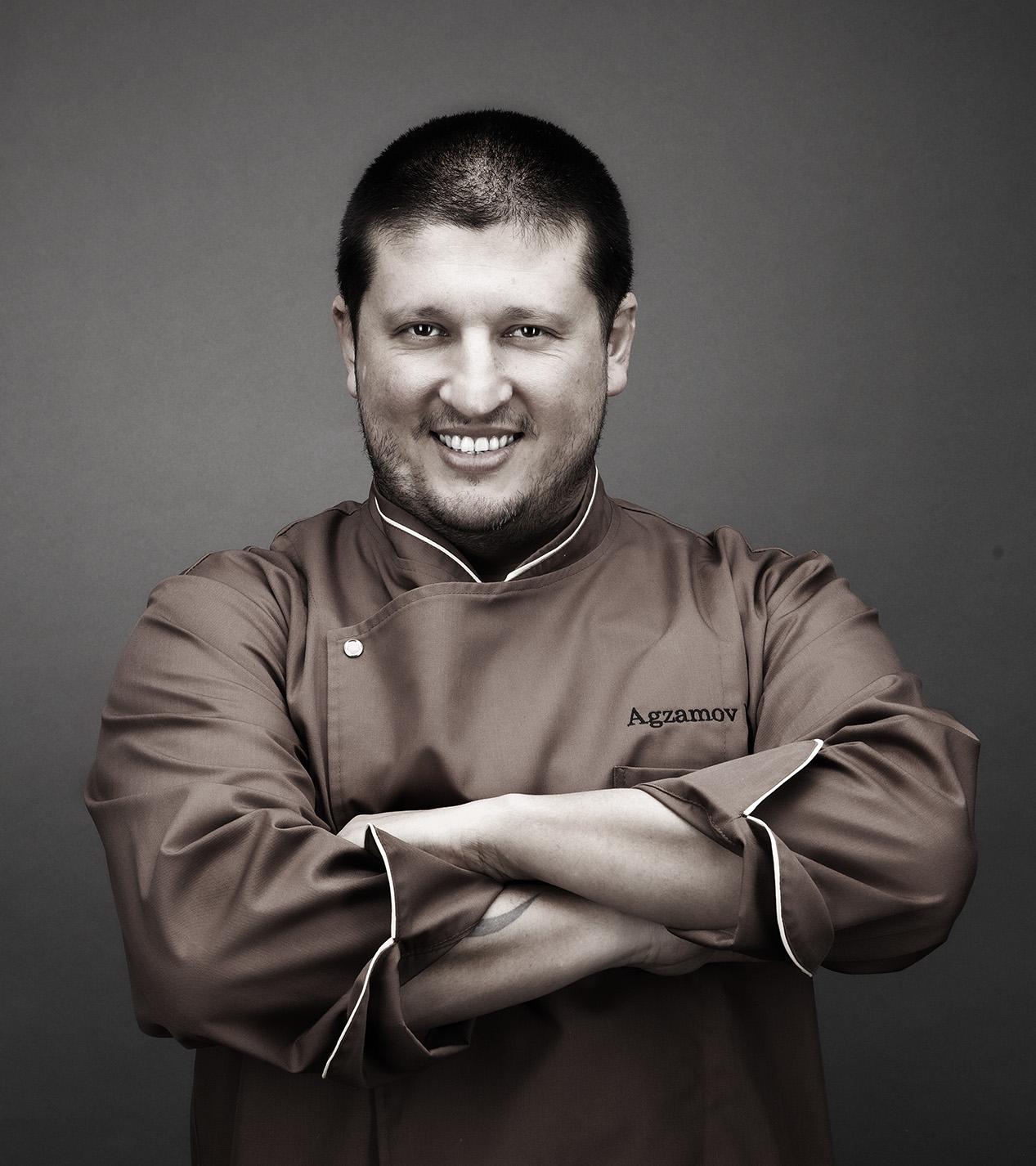historian, genealogist, and rodologist
Ekaterina, can you tell us what motivated you to start professionally pursuing genealogy?
I have been interested in it since early childhood. I always carried a pencil and a spiral-bound notebook with me. I followed my grandfather around, asking him questions like, «Who were your parents, what did they look like, what was your father’s education like…». And I wrote it all down in my notebook. I was fascinated by learning about the history of my family.
I value my family very much for the traditions that have stayed with me for life. For example, my two favorite holidays are Christmas and Easter. I always look forward to them because everything in our lives comes from our childhood.
How did you manage to master genealogy so professionally? Did you need some special education in this field?
As for education, I have a separate story. After the 9th grade, I enrolled in the Moscow School of Fashion, Design, and Technology. So my first degree is in fashion design and construction. My mother was convinced that I would become a famous fashion designer and conquer the world capital of fashion. But I learned how to sew and realized that it was enough for me. Therefore, I came to my parents in Bryansk for the summer holidays and silently began preparing to enroll in the history faculty at Bryansk State University, which later became the Faculty of International Relations. I was lucky to study under Ranchinsky. During the entrance exam, I had a heated argument with one of the members of the admissions committee. They realized that I knew the material well and could argue my point of view. So I was accepted into the history faculty, and I even got a free place transferred from the physics and mathematics department, despite the fact that I applied to the correspondence department. As a student of the history faculty, I immersed myself deeper into this topic, began making inquiries in different archives. And the more obstacles I faced, the more archives were inaccessible, the more interesting this topic became to me, the more my desire flared up. It was important for me to understand why I couldn’t get what I was looking for easily. Furthermore, my cousin is the deputy dean of the law faculty at Krasnoyarsk University. And our education, among other things, provided a good basis for implementing my initiative to study genealogy.
So what is the uniqueness of genealogy as a science? Not every historian is a genealogist. What is important to consider when mastering this field?
Genealogy is a system. It is a collection of information about the origin, succession, and kinship of families. You can’t just request everything about your grandfather from an archive. That’s not how it works. Because each archive contains millions of collections, and each collection has hundreds of different cases. Therefore, a very specific request is important here. Genealogy is built on three pillars: Who? Where? When?
It was then that I became seriously interested in psychology: I began to work on my relationships with my parents, tried out constellations, trigger and regression therapies… And then I even enrolled in the psychology department at the Moscow Institute of Physics and Technology. I am convinced that it is important to go where it is scary – that is where true personal growth begins. If a person does not challenge themselves every day and does not move forward, they procrastinate. After all, discoveries are made every second in the world. Ray Bradbury very subtly noted in his story «Dandelion Wine»: «Every morning, upon waking, we receive a credit of 86,400 seconds of life per day… and what is not lived during the day is lost… The bank can close the account at any time without warning; life can stop at any second.»

What is the most common myth around genealogy and ancestry research?
The most common myth is that all archives have been destroyed. I always laugh when I hear this. Many people also believe that genealogy is just about birth, marriage, and death records. But that’s not the case at all. There are over two hundred archives in Russia alone. Additionally, Moscow was the capital of the Soviet Union, so many archival documents of people from Belarus and many other currently existing countries are stored here. For example, the Central Archive of the Ministry of Defense of the Russian Federation (TsAMO) holds documents on all military personnel and prisoners of war. Germany handed over to us the database of 519,000 prisoners of war in 2019.
We have a wonderful archive called the Russian State Archive of Socio-Political History (RGASPI), which holds documents on joining and expulsion from the Communist Party, partisans, and more. Today, you can find documents on children lost during the war: where they were sent, who adopted them, and on evacuees during the Great Patriotic War in the archives of the Red Cross. Some documents are stored, for example, in the archives of the Pension Fund of the Russian Federation, where you can find triangular letters from the war years and work records. Thanks to this, you can obtain information about our great-grandmothers and great-grandfathers – why they retired due to old age, disability, or loss of breadwinner, where they worked, and what awards they received.
So genealogy doesn’t end with information about birth, marriage, and baptism? What else can we find out?
Genealogy is always more than just records of birth, marriage, and death. At first, we build a framework from these records, and then the most interesting part begins. When we obtain personal records, information from census data, documents from the Russian Pension Fund that indicate, for example, how many abortions our grandmother had or what illnesses our ancestors had. It is important to understand if there is a family scenario that we need to be aware of. In addition, we learn where our ancestors were sent, how much was taken from them, and how they were persecuted. There are three types of persecuted people, or «lihsents» in Russian. If we are talking about the clergy among our ancestors, we find out whether it was «black» or «white» clergy. Even among the nobility, we clarify which type: hereditary, permanent, temporary, or acquired.
In other words, we begin to study the biography of a specific person. How they lived, where they worked, what they did, where they traveled abroad, and what education they had.
And a huge number of people who think that everyone in their family were peasants and all were Russians are greatly mistaken. By conducting an investigation, they find a wealth of information. Moreover, in many of our archives, personal records are stored for 75 years, and pension fund records for 25 years, where you can find absolutely unique photographs and documents. Families can obtain these records upon request and understand how their ancestors lived.
We know that you have created your unique genealogical daily planner. Tell us more about it.
It’s a pretty funny story, actually. I was just walking with my friend at Patriarch’s Ponds, and I was doing genealogical research for her. She invited me to dinner that evening, but I declined because I needed to buy a notebook to draw lines and make a planner for the investigation. My friend was surprised and asked why I couldn’t just go to the store and buy a planner. I replied that the kind I needed didn’t exist. And she said an amazingly simple but correct phrase: «So make it yourself and print copies!»
I came home, conducted a survey through social media, asking if others would be interested in such a planner. I received a lot of positive responses, after which I found out how much it would cost to print the first run. People simply believed in me and my idea, and they chipped in for printing costs. I raised the necessary funds, sent the layout with all the comments to the printing house. Printing it wasn’t as simple as I had hoped. According to my plan, besides the complex design of the daily planner, it should have a special poster and stickers. I had to wait for a month and a half. And to maintain people’s interest, I started a separate page on social media, where I regularly hosted live streams about finding one’s ancestors. After 1.5 months, I received and sent out the first 100 copies of the author’s genealogical daily planner. By that time, thanks to my lectures and live streams, people who were waiting for the planner had already traced their family tree back to 1840. In other words, they had studied the history of their five generations of ancestors.
I always say that you don’t need money to start a business.

Many believe that genealogy is only for the wealthy. Is this a myth or truth?
You know, when my daily planner became a bestseller on OZON just a week after its release, a certain gentleman (I won’t mention his name) called me and said, «What are you doing, Ekaterina? Not only did you start releasing an Almanac that hasn’t been published since the time of Nicholas II, but you also created your own notebook. Don’t you know that yachting, aviation, and genealogy are only for the wealthy?» I was upset. But one very wise person told me, «If they’re already telling you that now, it definitely means success!» And maybe my mission is to make genealogy accessible to everyone. Yes, investigations can sometimes cost more than a million rubles, and sometimes that figure reaches 5 or 7 million. And all these amounts are fully justified. But I always say one important phrase – you can and should research the 19th and 20th centuries yourself. No matter how charming and professional the genealogist is, your grandmother will never spill the beans, never tell them some secrets and mysteries, for example, about your great-grandmother’s abortions, or that your great-grandfather had a second family. A genealogist will never learn about this; all these family secrets remain «in the kitchen.» But to find information that goes back even further, you can’t do without a genealogist’s help. Because there, the handwriting starts to become difficult to decipher, and there is a large volume of script that cannot be understood on your own.
And I believe that genealogy is accessible to everyone today. At least, my colleagues and I are doing everything we can to make it so.
Surely, you had a specific question that particularly interested you and motivated you to delve deeper and deeper into genealogy?
Yes, my father grew up in an orphanage, and I was interested in learning about his family history. And today, I know 11 generations of his family dating back to 1720.
My parents divorced when I was 1.5 years old, and when I was 5, my father was killed. But I had an intense connection with him. After he passed away, he visited me in my dreams every night and gave me advice on how to handle different situations.
Interestingly, during the time when I was working through my relationship with my father, I was swindled out of a million rubles in a real estate deal. They didn’t pay me my commission. I told my friend about it, and she asked, «Is it okay for people to treat you like this?» I was so taken aback but replied, «No!» and took them to court. It’s interesting that finances are also a key question in genealogy. I had a fixation on making a million rubles in one month. And when I began analyzing my family tree, I saw that many people in my family had similar experiences in the financial sector. So I analyzed the information related to my great-grandfather, who was persecuted during the Soviet era, in great detail.
Do people come to you who don’t know who their father is?
Yes, sometimes people come to me and say, «I don’t have a dad». And I respond, «That’s not possible,» there’s no immaculate conception. Fathers don’t abandon their children! This is a really cool and important phrase.
Because there has never been a case where, for example, Nick comes to Lucy and says, «You’re such a cool chick, you make great borscht and everything is great between us in bed. But for some reason, our daughter turned out to be a complete failure. I don’t want to live with her. Choose: either I leave or she goes to an orphanage!» That never happens, right?!
But there are moments when we grow up without fathers. When an adult man and an adult woman cannot part ways gracefully, remembering all the wonderful things that once existed between them, even if it’s just for the sake of their own children. Fathers don’t abandon their children. Sometimes it’s just that the mothers of these children can’t handle the story that they themselves are no longer needed, interesting, or loved! Admitting this is also a sign of strength and maturity.
How does genealogy differ from rodology?
If genealogy is the systematic collection of information about family histories, then rodology studies specific programs that stem from family history (scenario programs). And rodology works with three spheres of life: personal life, health, and finances. And if a person has problems in these areas, it is possible that the problem is related to their lineage. For example, both the grandmother and mother lost their husbands when they were 21 years old – this is already a repeating scenario. Therefore, it is impossible to study rodology without knowing genealogy (the history of several generations of families).
I have two courses: one on genealogy and one on rodology. In genealogy, we study the family tree, collect documents, and find photos. In rodology, we create special psychogenosociograms. But for this, a person must know at least 4-5 generations of their family. Therefore, I only take one in ten people on the rodology course. Many believe that our ancestors are to blame for our failures, such as financial or family issues. But you cannot confidently assert this without knowing the history of your family. Sometimes, it is just our own mistakes, our personal responsibility zone.
–Why is the topic of rodology so hyped up nowadays?
It is natural for people to want to understand everything. If a few years ago we had only virologists, today everyone is a rodologist. Many simply realized that this is a trendy new word. And today, the concept of «Rhodology» includes both classic psychology, regression, hypnosis, and the weaving of «family trees» from some ropes.
In general, the founder of Rhodology, which was originally called psychogenealogy, was Anne Ancelin Schützenberger, a Russian by origin, but a Frenchwoman by residence. It was she who opened a whole faculty in the university in Nice based on psychogenealogy and created the so-called genosociograms – which is exactly what we use now in classic Rhodology. Therefore, I always emphasize that Rhodology cannot exist without genealogy! For example, if a person from an orphanage comes to us and does not know what terrible things happened in their family and why it is so necessary for them to «cleanse this history», then it is pointless for them to study Rhodology without prior study of genealogy. And often, for people who already understand their genealogy, Rhodology is completely unnecessary. My favorite phrase is: «No matter how much you breathe with your mother, spin your chakras, or study your kundalini, the book of the family will not write itself!» You can go into hypnosis, regression, as much as you want, but you will not find any documentary evidence of your request. Unfortunately, there are now many esoteric wizards who, under the guise of the trendy word «energy,» tell fairy tales.
As we talk about history, I cannot ignore the topic of May 9th, Victory Day. What does this holiday mean to you?
Well, for me, of course, it’s not just a «barbecue holiday.» Many people say that there is nothing to remember. And everyone has forgotten simply because they have nothing to remember, because they do not know history. Nothing changed for them in their families, nothing happened. However, I was told that three of five children died of starvation because the entire country put everything they had into this war. And if we talk about Europe, which has forgotten its history, it had nothing to remember in the first place. If we remember, Poland held out for a month before surrendering, France surrendered in 43 days, Yugoslavia surrendered in 12 days. Meanwhile, in Volgograd, Pavlov’s House alone held out for 58 days. And during the nearly 1500 days of the war, a huge number of our people – our great-grandfathers and great-grandmothers, grandfathers and grandmothers – died, whom we will certainly remember! Because the question is why subsequent wars continue to happen. For example, the current conflict with Ukraine. The thing is that the clan system is structured in such a way that if we forget about a hero in our family, fate throws us a chance to have a new hero. In other words, if we forget a hero of the Great Patriotic War or any other war, a new war will arise to raise a new hero. There is no empty sacred place. And if we forget whom we should be proud of, then we are simply given the opportunity to «grow a new hero» in our family. And here it is very cool to trace this history through those people who do not remember their grandfathers, who do not keep this memory, who do not go to the Immortal Regiment, and who do not tell their children about whose blood flows in them. Because we are all the descendants of the Victors.
What does your unique creation represent today?
Currently, I work with a team of like-minded individuals who want to grow and develop with me. Together, we have created a variety of interesting information products, including online webinars and a notebook available on various marketplaces. We also offer two courses, one on genealogy and another on rhodology.
I also have a socio-cultural project where every Saturday, my followers and I visit different museums and bring children along.
I pursue all my projects at first not for money, but for my own fulfillment. Tolstoy once said, «If I could avoid writing, I would. But I can’t.» Similarly, I can’t help but pursue genealogy and rhodology. I help people discover their ancestors, learn about their family history, and answer the questions that hinder their success in life. I am a happy person, and every morning I know why I woke up today.









